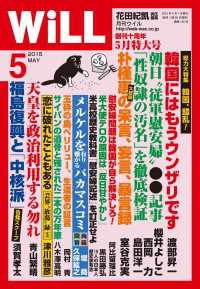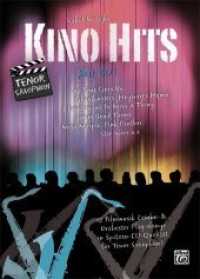- ホーム
- > 洋書
- > ドイツ書
- > Humanities, Arts & Music
- > Linguistics
- > english linguistics
Full Description
The study focuses on spatio-temporal relations and their dependence on literary genres in Paul Auster's fiction. The author examines how selected novels reflect and redefine both the representation of space and formulaic patterns of genres they can be categorised as. Semiotic spaces created by Auster share some common features, such as dislocation, diversity or incongruity. Read as the postmodern ones, they are remodellings of novelistic chronotopes defined by, for instance, the tradition of detective fiction or the road novel. As such, Auster's dialogue with tradition in terms of genre-specified features and models of space has led to the emergence of generic variants exhibiting tenets slightly or extensively altered in comparison to their predecessors.
Contents
Introduction — Chapter 1: Detecting Chronotopes: Auster's Postmodern Detective Fiction — Chapter 2: Travels Inside a Room - Travels Inside a Mind: Paul Auster's Psychological Novel — Chapter 3: Journeying Across the Country and Through Life: Road Novel and Bildungsroman — Conclusion — Works Cited — Index








